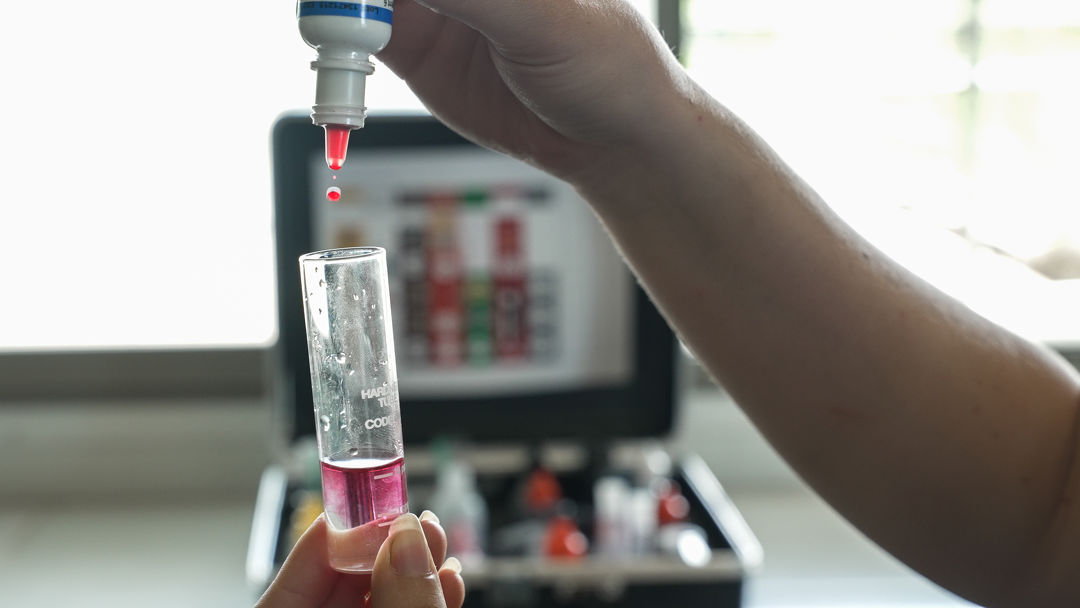The role water plays in chemical performance with FIL's Technical Manager
25 Jan 2025

Water quality plays a big role in the dairy, impacting the efficacy of dairy detergents and teat spray, says FIL Technical Manager Drew Chadwick. “It’s important to know what type of water you’re dealing with. Understanding your farm’s water quality will impact overall performance and results.”
Water that has high levels of calcium and magnesium hardness, alkalinity or iron hinder the performance of acid-based detergents. In this type of water, it is more difficult to bring the pH down to a level required for effective milking machine or vat cleaning.
The minerals found in hard water can combine with the detergents, rendering them less effective. This will present in sub-standard cleaning effectiveness and potential hygiene grades.
“Excellent water will mean the chemicals will perform exceptionally well. The recommended rate will always work very efficiently in waters that present with high levels of purity,” says Drew.
“When water quality is compromised, product will not work as well. Therefore, more will be needed to achieve an adequate pH change to clean the milking plant effectively.”
Typically, the amount of product used in difficult water situations has been determined by trial and error, however FIL has equipped their team with farm water analysis equipment to accurately assess relevant water parameters, which may otherwise go undetected.
“Water issues are quite often not visible to the naked eye. Some waters are noticeably turbid if they have iron in it, appearing cloudy or murky, but water can generally look fine.”
“Having all of this information will enable a wash program to be precisely tailored for that individual farm,” says Drew.
As well as dairy detergents, water quality can influence the efficacy of your mixed teat spray.
“Quite often chlorhexidine teat sprays don’t suit water high in iron or certain hard waters.”
The active chlorhexidine will drop out of the solution and can be found clogging filters and blocking teat spraying nozzles.
“As well as being an inconvenience, this will reduce the amount of chlorhexidine in the teat spray. Changing teat spray actives or treating the water using a water softener may be the best solution in this case,” concludes Drew.
Need a hand? Your local FIL Area Manager can help make recommendations based on the type of water you’re dealing with.
Back...
